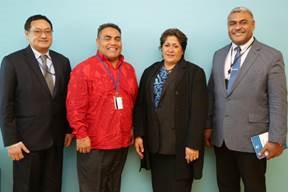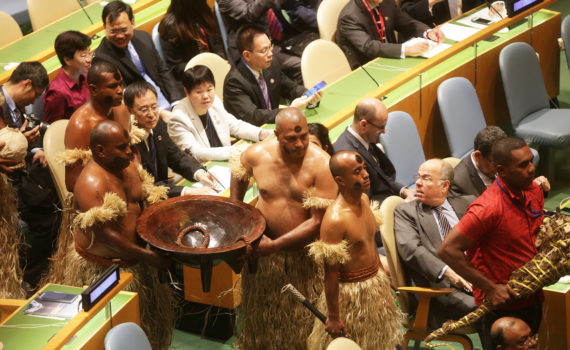29-31March, 2017
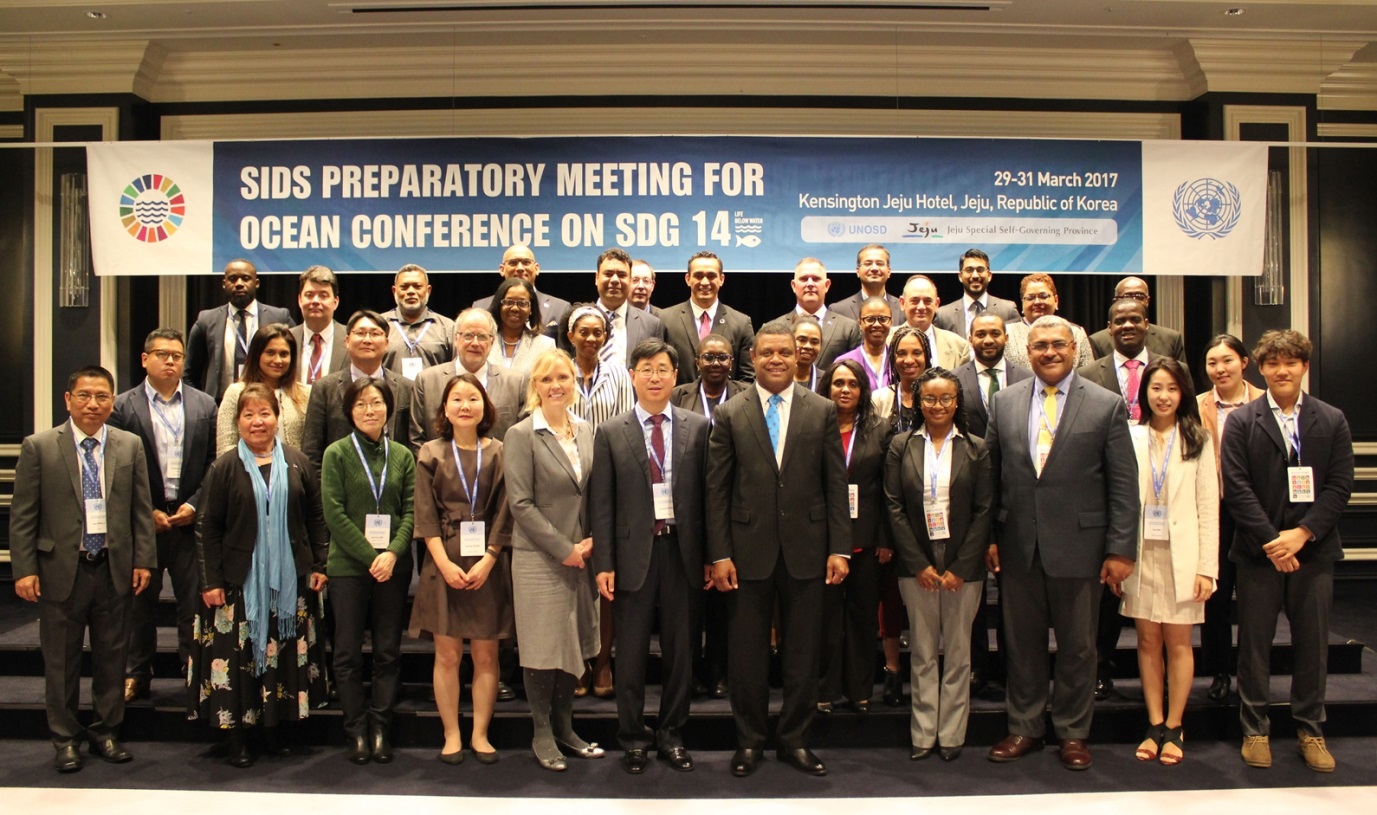
Group Photo
In advance of the UN Ocean Conference on SDG 14 AOSIS requested that the SIDS unit organize a preparatory meeting for SIDS in collaboration with UNOHRLLS, UN-DOALOS and the UNSD Office, Korea.
The meeting provided a forum to discuss the content of the draft ”Call for Action” document and a space to exchange views and to better understand each other’s priorities and expectations for UN Oceans Conference. It was an opportunity to discuss the need for voluntary commitments from all stakeholders in driving the implementation of SDG14 and its associated targets. In addition it was a forum for exploring how the coherent implementation of SIDS priorities, including at regional and national levels, as reflected in the SAMOA Pathway and SDG 14, is reflected in the draft Call for Action document.
Drawing on a wide range of SIDS representatives and experts from Capitals, Embassies and from Permanent Missions to the UN in New York, the meeting provided, for SIDS, an opportunity to take stock of the status of preparations for the Conference and a space to exchange views on priorities and expectations from the Ocean Conference.
Forum topics dealt with ocean conservation initiatives and activities, possible voluntary commitments from all stakeholders and approaches to establishing partnerships for implementation of ocean/marine-based projects, review of progress in the negotiation of the draft Call for Action and an exploration of opportunities for the coordinated and coherent implementation of SIDS priorities, including through scaled up commitments, with respect to the SAMOA Pathway and the 2030 Agenda, in particular, SDG 14.
Day 1

Day one activities
Welcome remarks were delivered by Mr. Jong-Soo Yoon, Director, UN Office for Sustainable Development, ROK, Mr. Sainivalati S. Navoti, Chief of the SIDS Unit, SIDS, Ocean & Climate Branch, DSD/DESA, H.E. Ambassador Filimoni Kau, (Fiji’s Ambassador to the RoK), Ms. Heidi Schroderus-Fox, Director, UNOHRLLS and Mr. Dmitry Gonchar, Principal Legal Officer, Division for Ocean Affairs and the Law of the Sea, OLA. A special video message from the Office of the President of UNGA was delivered by Ms. Dessima Williams, Special Advisor on SDG.
Following a presentation on the aims and programme, the meeting heard an update on the preparation process for the UN Conference and a presentation on the 2015 Global Marine Assessment. A general discussion on SIDS priorities then ensued, focusing first on the SAMOA Pathway and the 2030 Agenda and later on the 10 targets of SDG14.
A welcome reception was graciously hosted in the evening by UNOSD.
Day 2
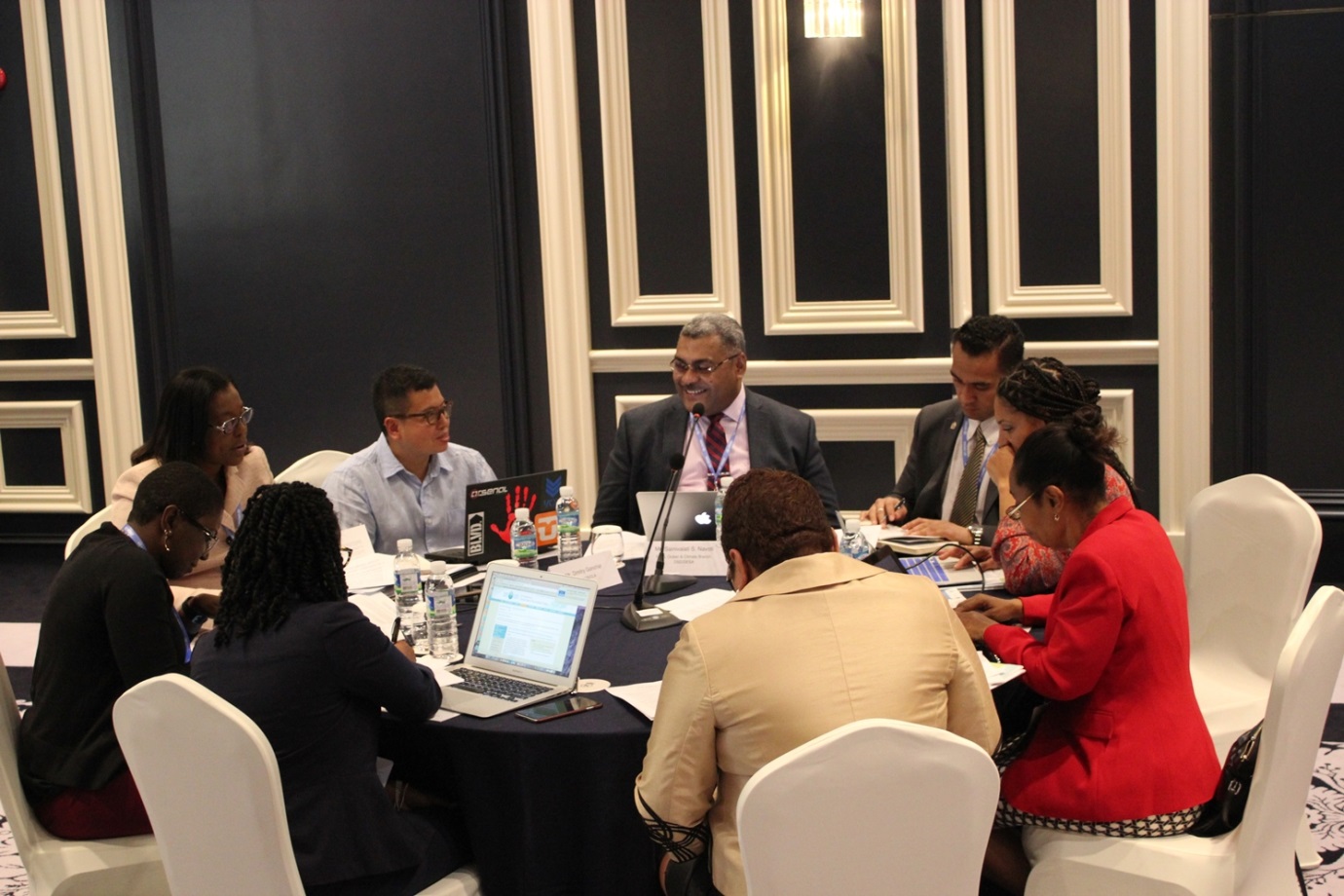
Day 2 activities
The second day started off in breakout sessions. Participants discussed and shared ideas on how to advance the priorities identified in discussions on Day 1. They also examined and discussed suggested solutions to bridging some of the gaps that were identified or revealed during the breakout session. They reported that the zero Draft Call for Action Document omitted six issues raised in the SAMOA Pathway:
- Oil leaks from sunken vessels (Para.56)
- Munition dumped at sea (para8(p))
- SIDS strategy on ocean acidification (para.8(n))
- Underwater heritage (Para.51)
- Marine scientific research and
- Development of technical capacity of SIDS (para. 8(f)).
The meeting also benefited from presentations made by Mr. David Le Blanc, Chief, DMB/DPADM/UNDESA and Ms. Shifaana Thowfeequ, Economic Affairs Officer, UNOHRLLS focusing on SID’s assessment of Partnership covering the targets of SDG 14.
Day Three
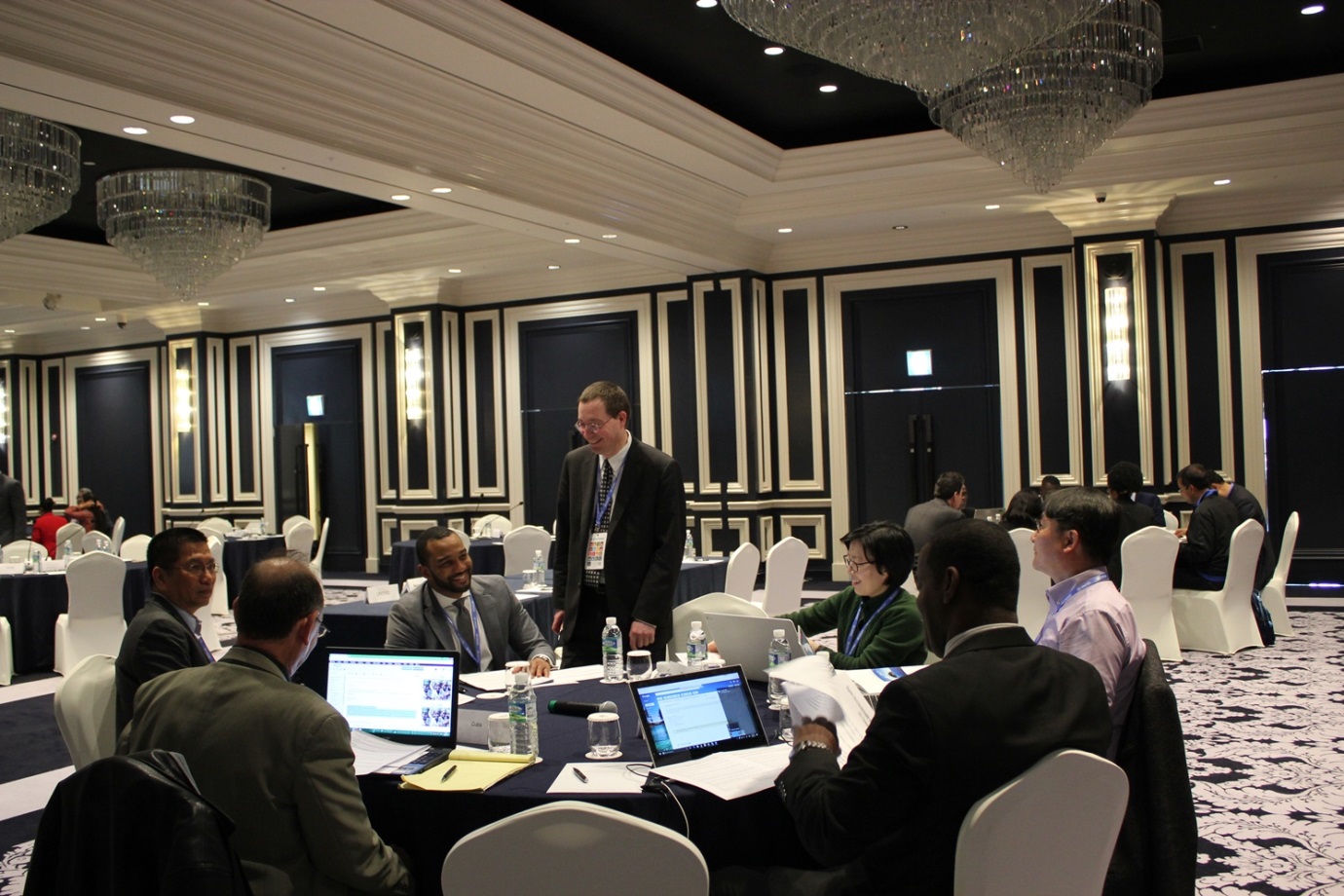
Day 3 activities
Day 3 was a half a day meeting and it commenced with a recapitulation of key points discussed on Day 1 & 2. A summary of key points discussed is at Annex A. Participants then retreated to their regional groups to discuss how SIDS can take advantage of and benefit from the UN Ocean Conference commenced with a repopulations of key points discussed by Ambassador Troy Torrington (Guyana). Participants were then broke into their regional groups to discuss how SIDS can benefits from the UN Ocean Conference. Discussion focused on their perception of success:
- During the Conference;
- Immediately after its conclusion; and
- Three years down the line.
Outcome
Participants were updated on latest development in process and preparation for the Conference and acquainted with purpose and proposed outcomes of the Conference. They were informed of the latest in the “Call for Action” document, on the “Voluntary Commitments and of the Partnership Dialogue, including major deadlines.
- SIDS gained a fuller understanding of each other’s priorities and expectations for the Conference and better appreciation of gaps in the “Call for Action” document and formulate ways of addressing such gaps in the second round of negotiations of the said document.
- SIDS gained deeper appreciation of the importance of ensuring coherent implementation of their priorities as reflected in the SAMOA Pathway and SDG 14.
- SIDS identifying priority areas requiring capacity development relating to implementation of the SAMOA pathway, Agenda 2030 and other related agreed intergovernmental instruments.
As recommended the members of AOSIS, at the working level, were briefed on the Jeju SIDS Preparatory Meeting:
- The DESA SIDS Unit will follow and monitor the next round of negotiations of the “Call to Action document and assist SIDS and SIDS Group’s effort in reflecting SIDS priorities in the document.
- Organize a follow up meeting after the conclusion of the UN Ocean Conference and HLPF 2017 to identify ways of supporting SIDS in the implementation of the SDG 14, especially through interlinkages with other SDGs.
Special words of gratitude are directed to the following colleagues, in recognition of their sterling role and for agreeing to act as chair-persons and rapporteurs during the meeting:
- Dominic Misiolo (Samoa)
- Josh Mitchell (Cook Islands)
- Maria Isabel Gomes Monteiro (Cabo Verde)
- Sylvain Kalsakau, (Vanuatu)
- Tishka H. Francis, (Bahamas)
- Troy Torrington (Guyana)
